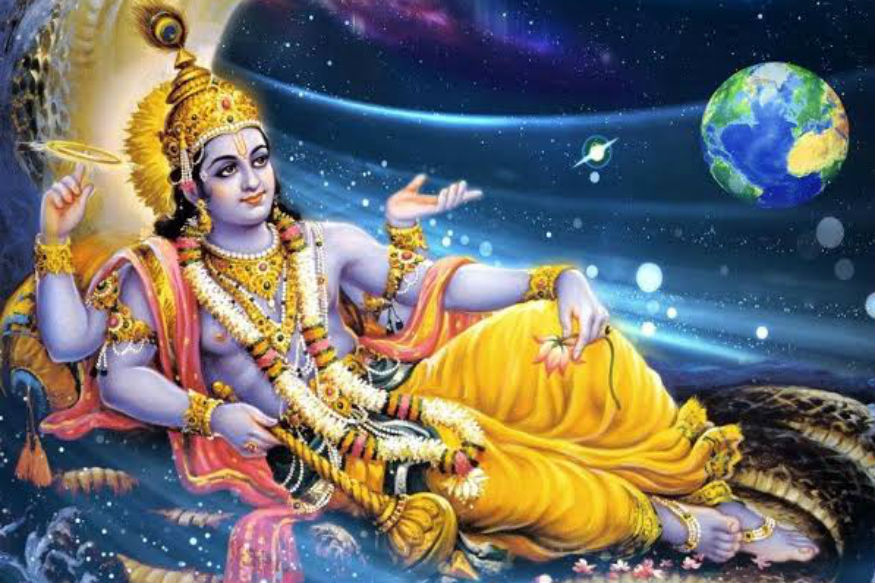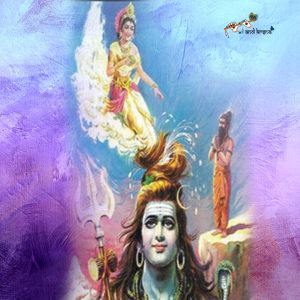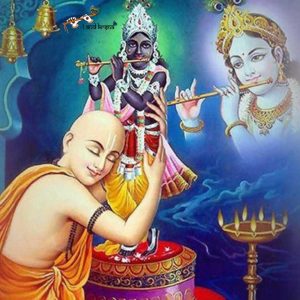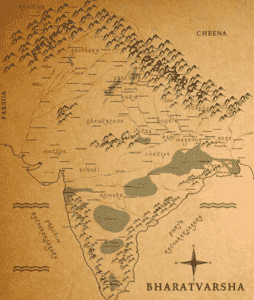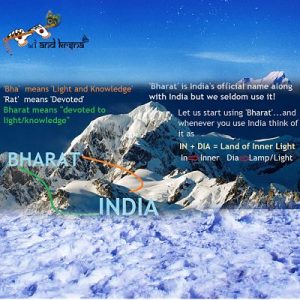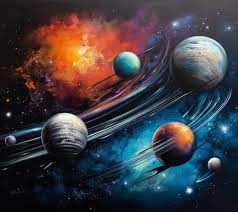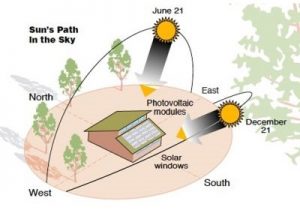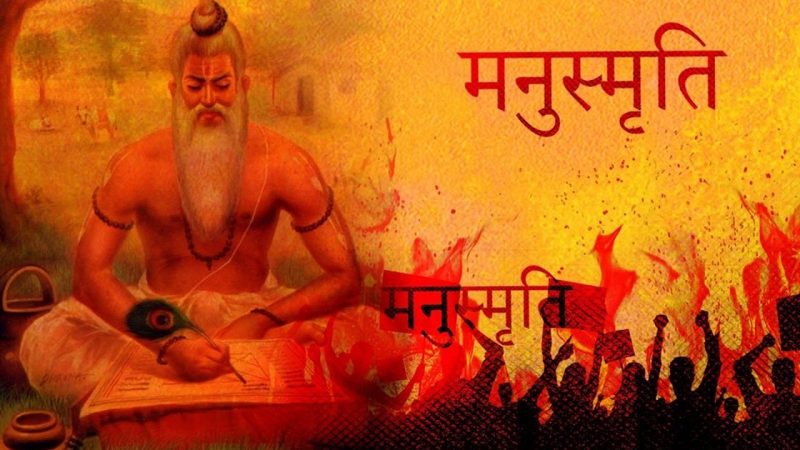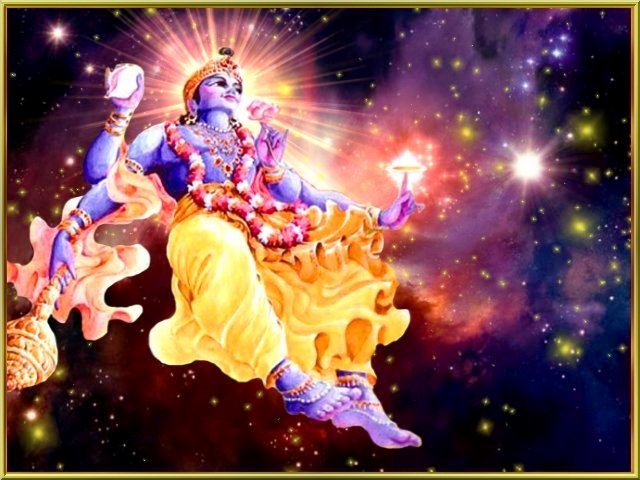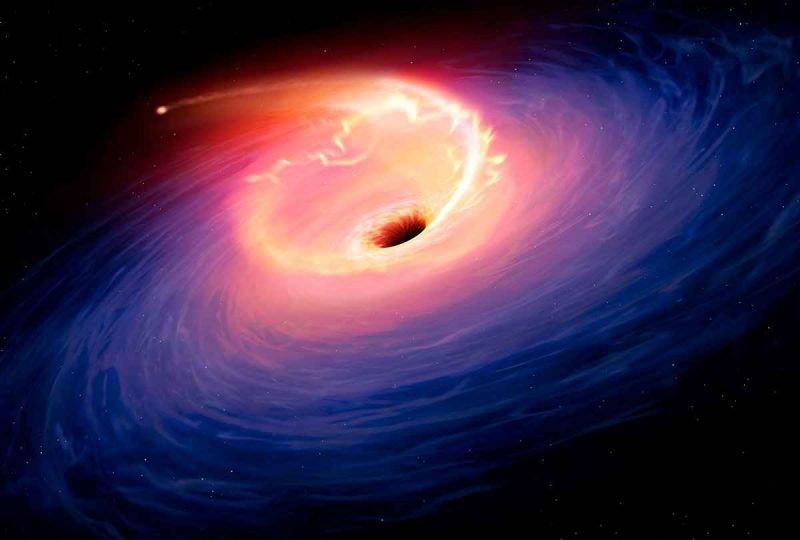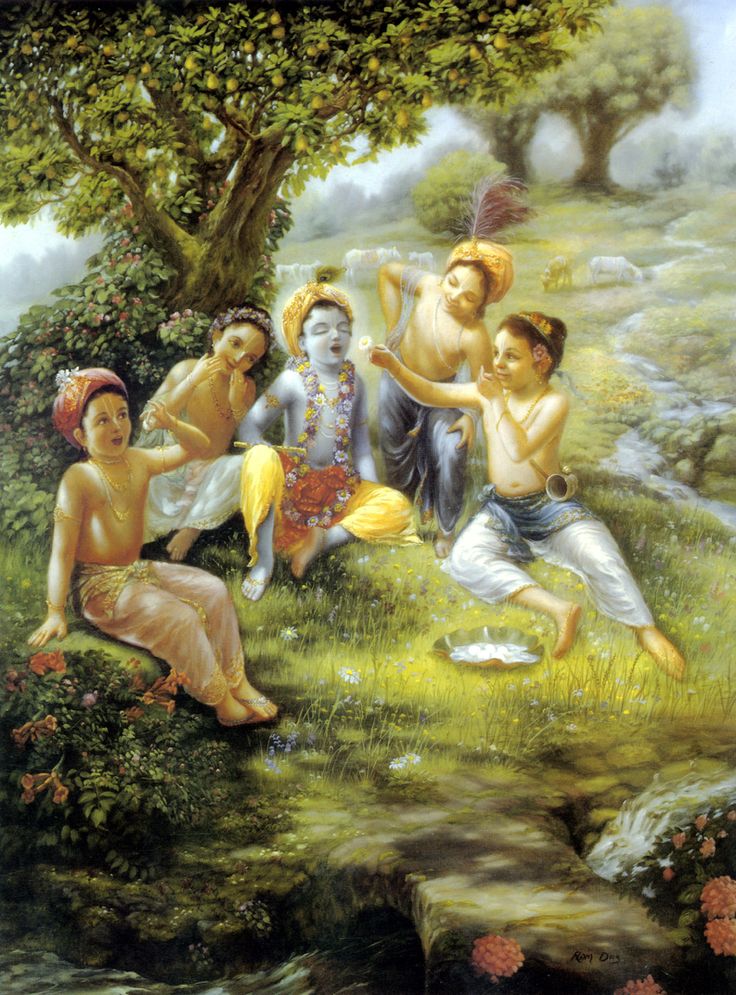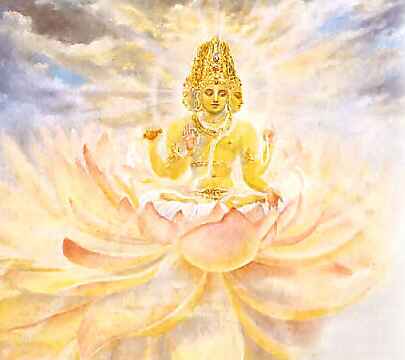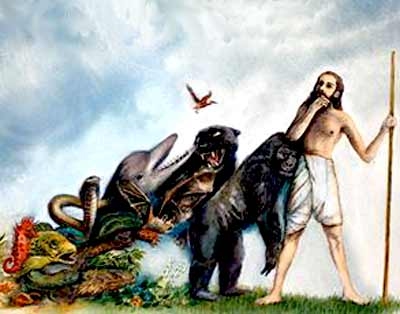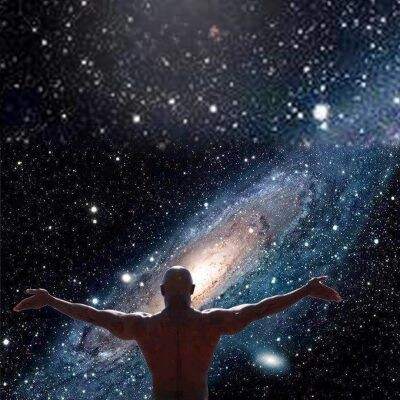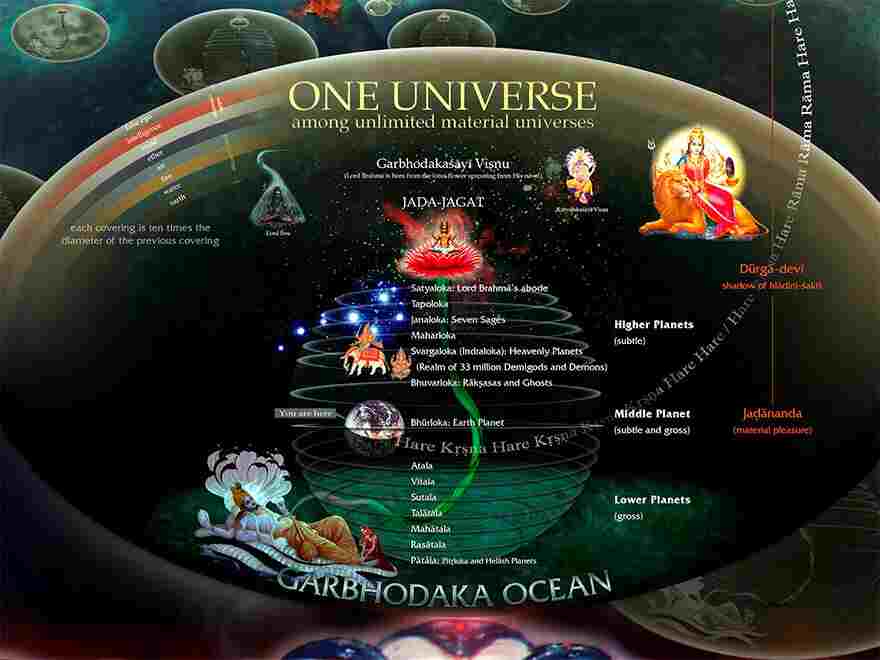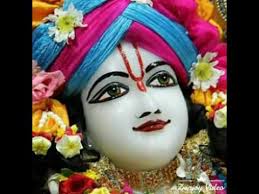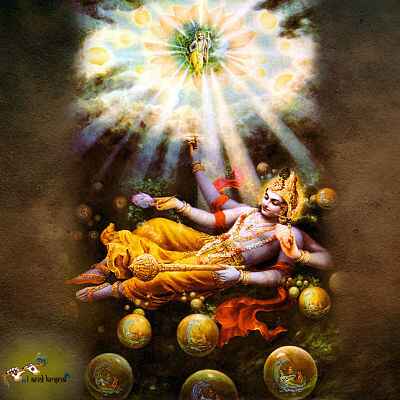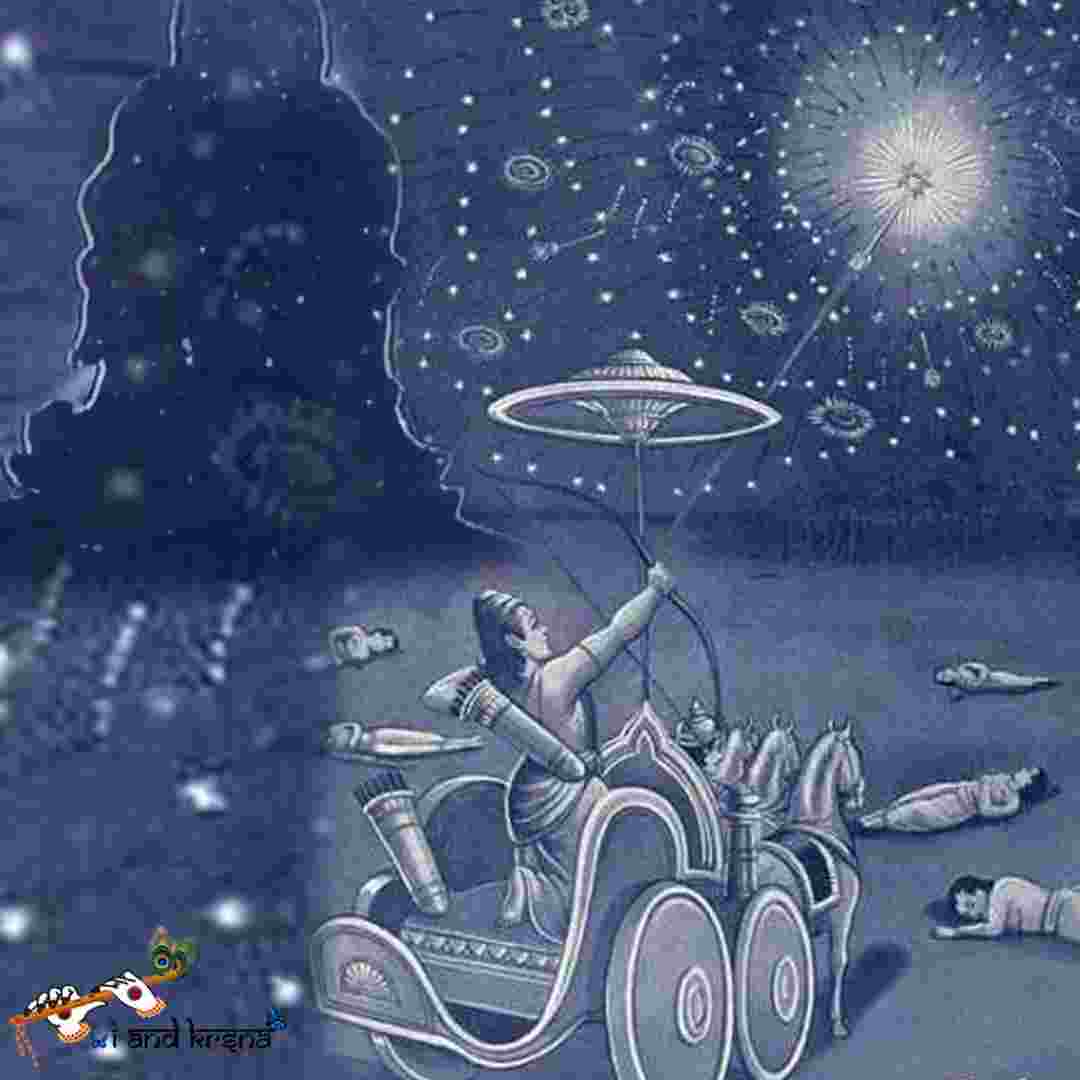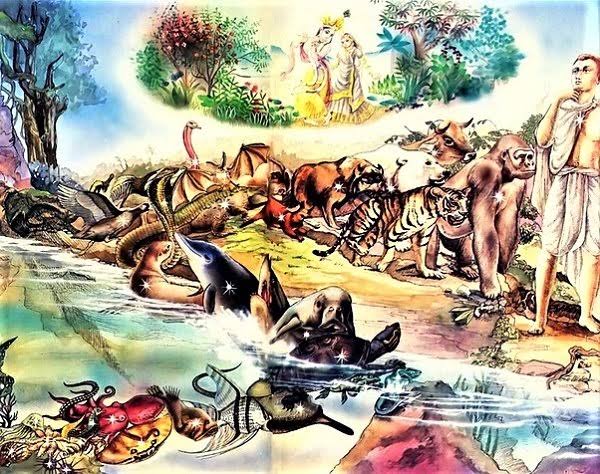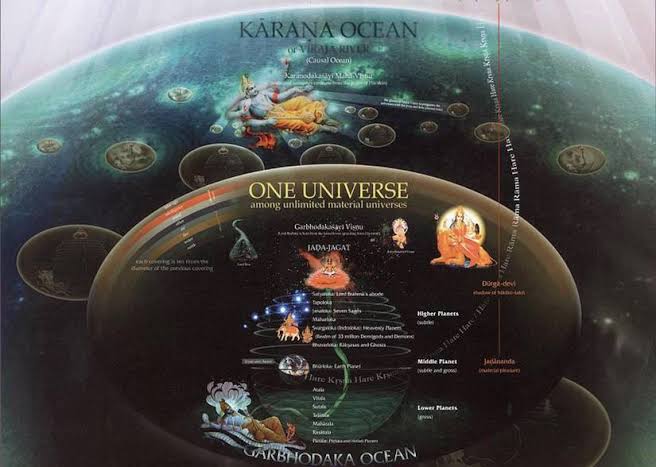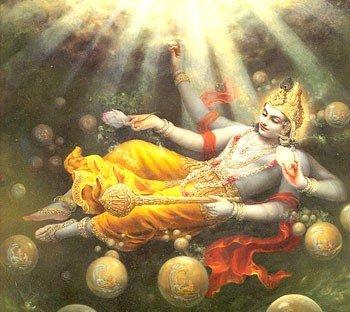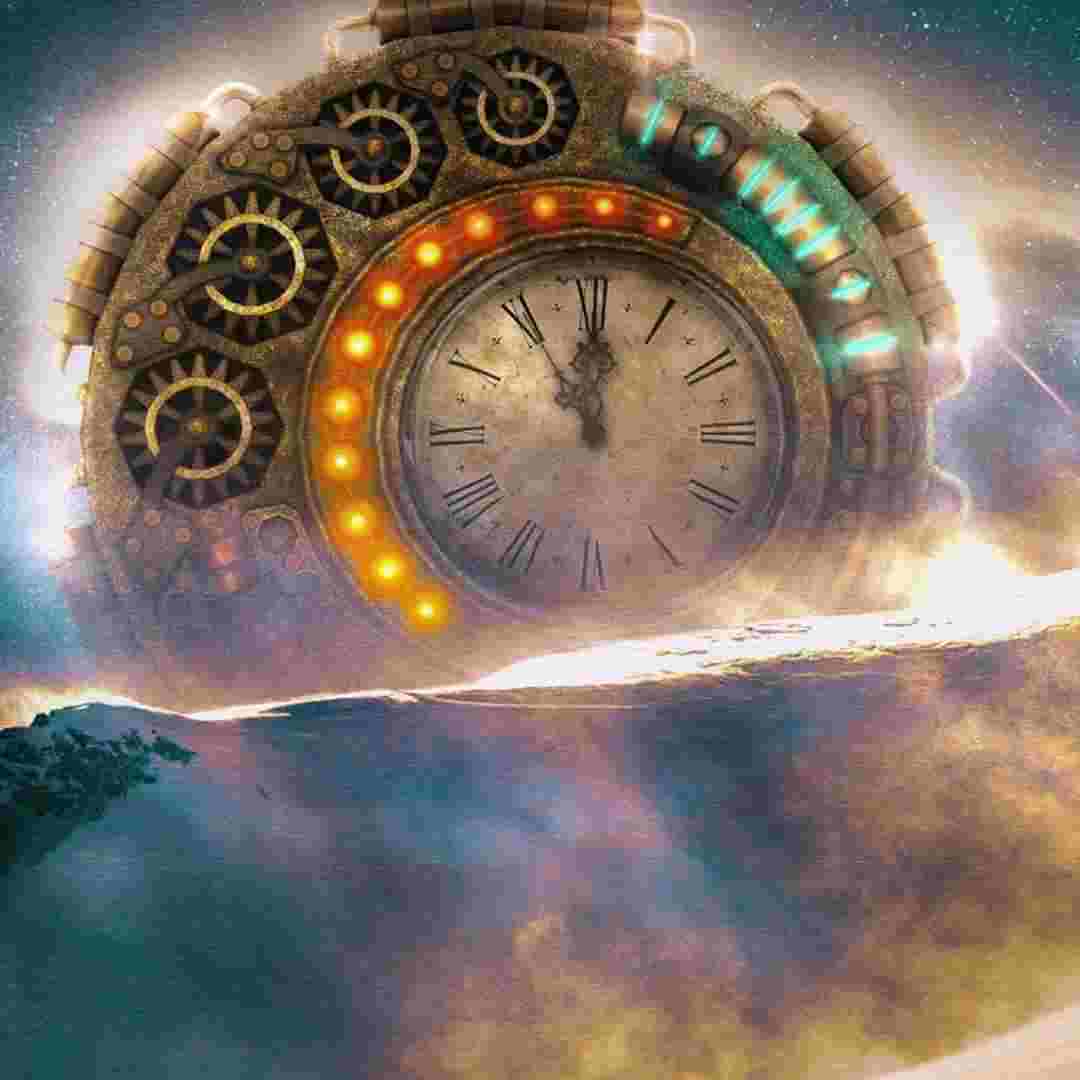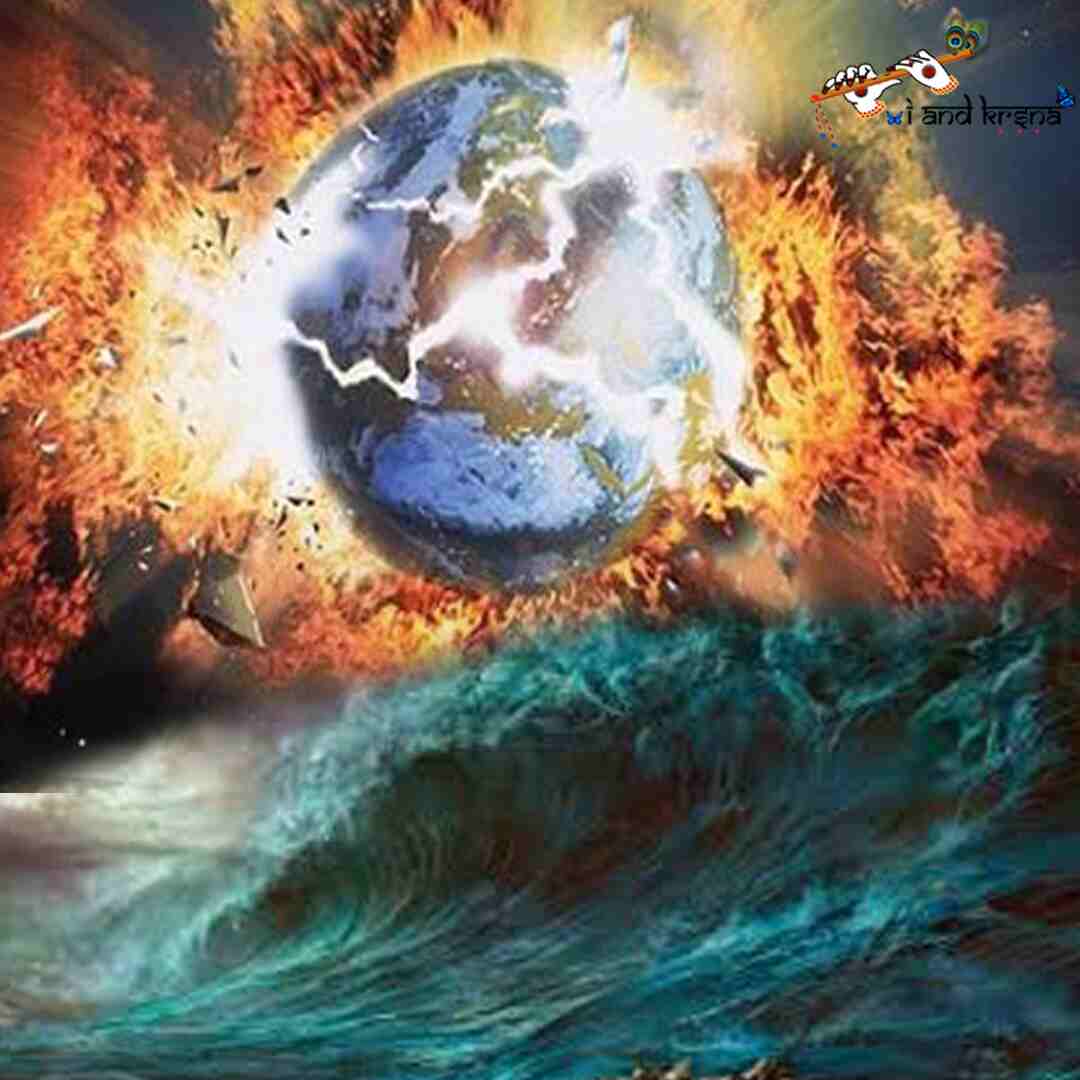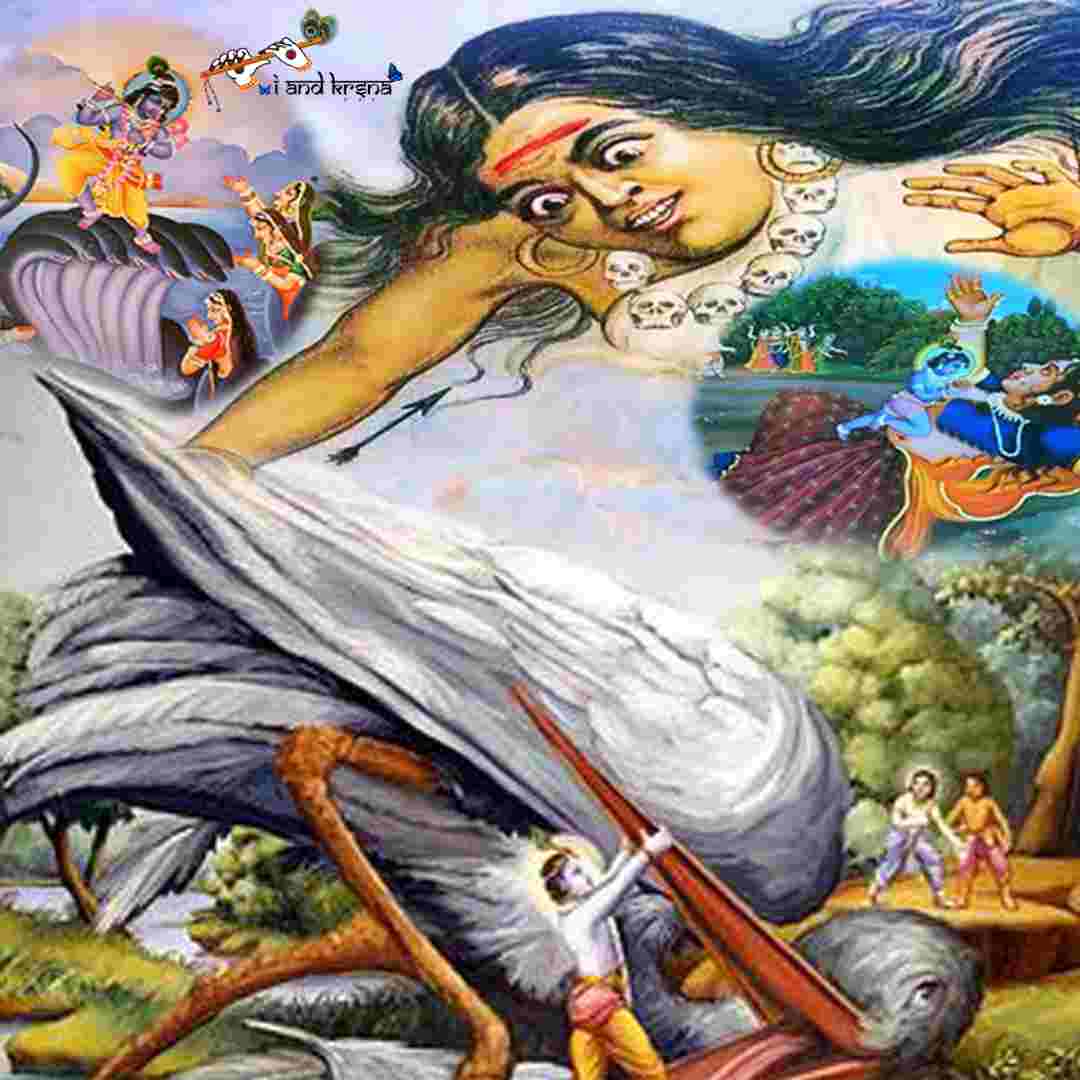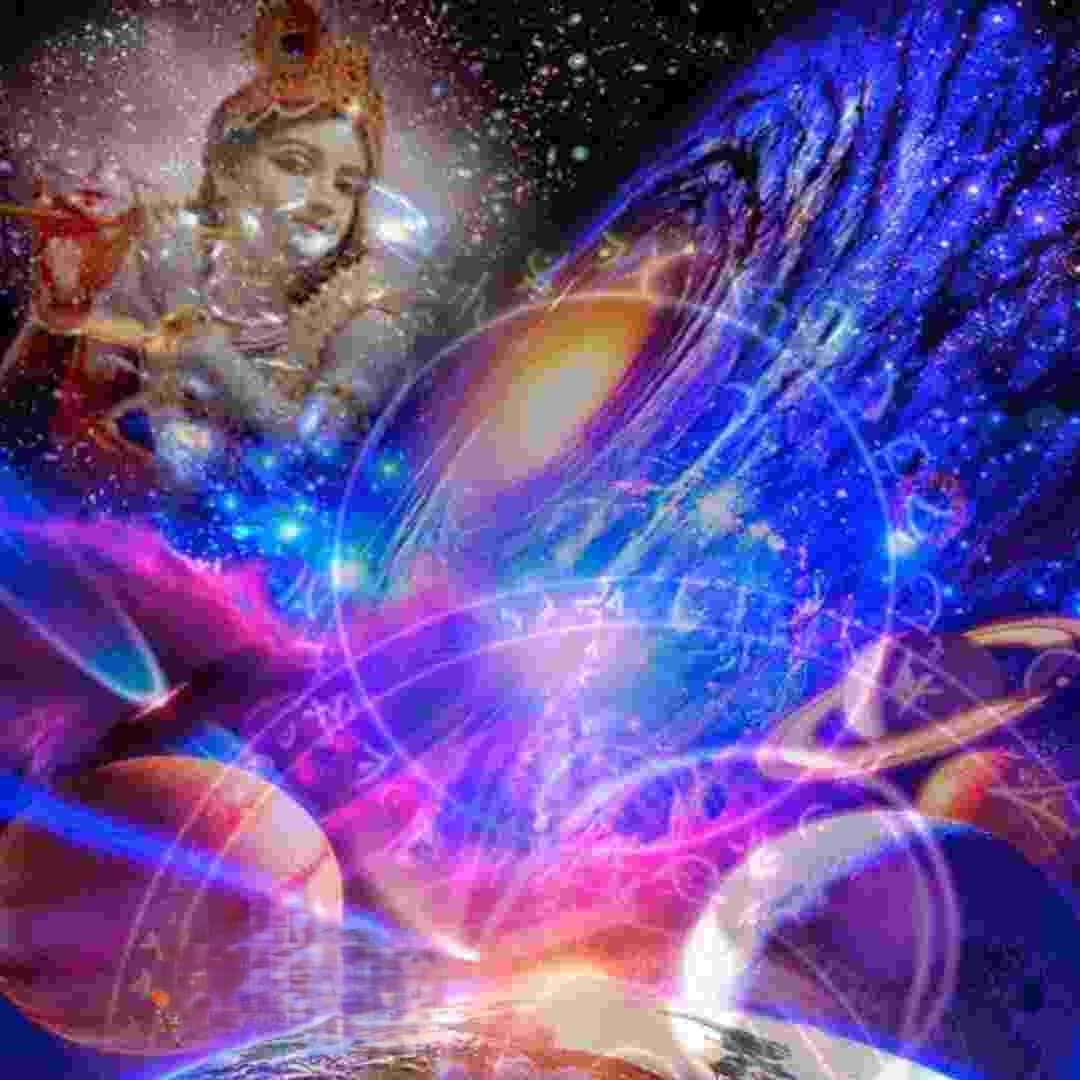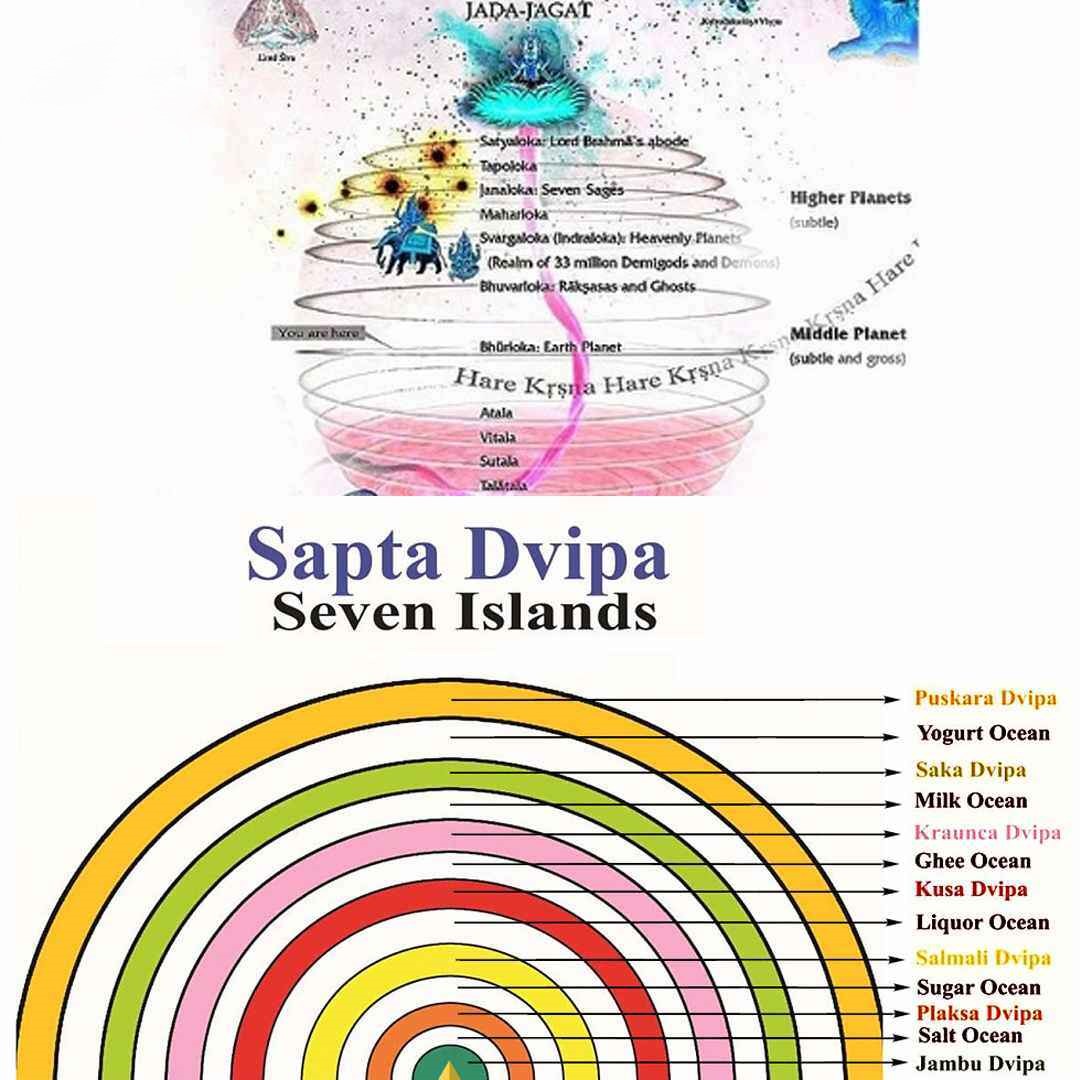Varities of this world would be impossible unless there were a real prototype in the spiritual world.
“The impersonalists try to prove that the varieties in the vision of the empiric philosopher are false. The impersonalist philosophy, vivarta-vada, generally cites the acceptance of a rope to be a snake as an example of this fact. According to this example, the varieties within our vision are false, just as a rope seen to be a snake is false. The Vaisnavas say, however, that although the idea that the rope is a snake is false, the snake is not false; one has experience of a snake in reality, and therefore he knows that although the representation of the rope as a snake is false or illusory, there is a snake in reality. Similarly, this world, which is full of varieties, is not false; it is a reflection of the reality in the Vaikuntha world, the spiritual world.
The reflection of the sun from a mirror is nothing but light within darkness. Thus although it is not exactly sunlight, without the sunlight the reflection would be impossible. Similarly, the varieties of this world would be impossible unless there were a real prototype in the spiritual world. The Mayavadi philosopher cannot understand this, but a real philosopher must be convinced that light is not possible at all without a background of sunlight. Thus the jugglery of words used by the Mayavadi philosopher to prove that this material world is false may amaze inexperienced children, but a man with full knowledge knows perfectly well that there cannot be any existence without Krishna. Therefore a Vaisnava insists on the platform of somehow or other accepting Krishna (tasmat kenapy upayena manah krsne nivesayet).”
Source: A.C. Bhaktivedanta Swami Prabhupada (2014 edition), “Srimad Bhagavatam”, Seventh Canto, Chapter 15 – Text 58


